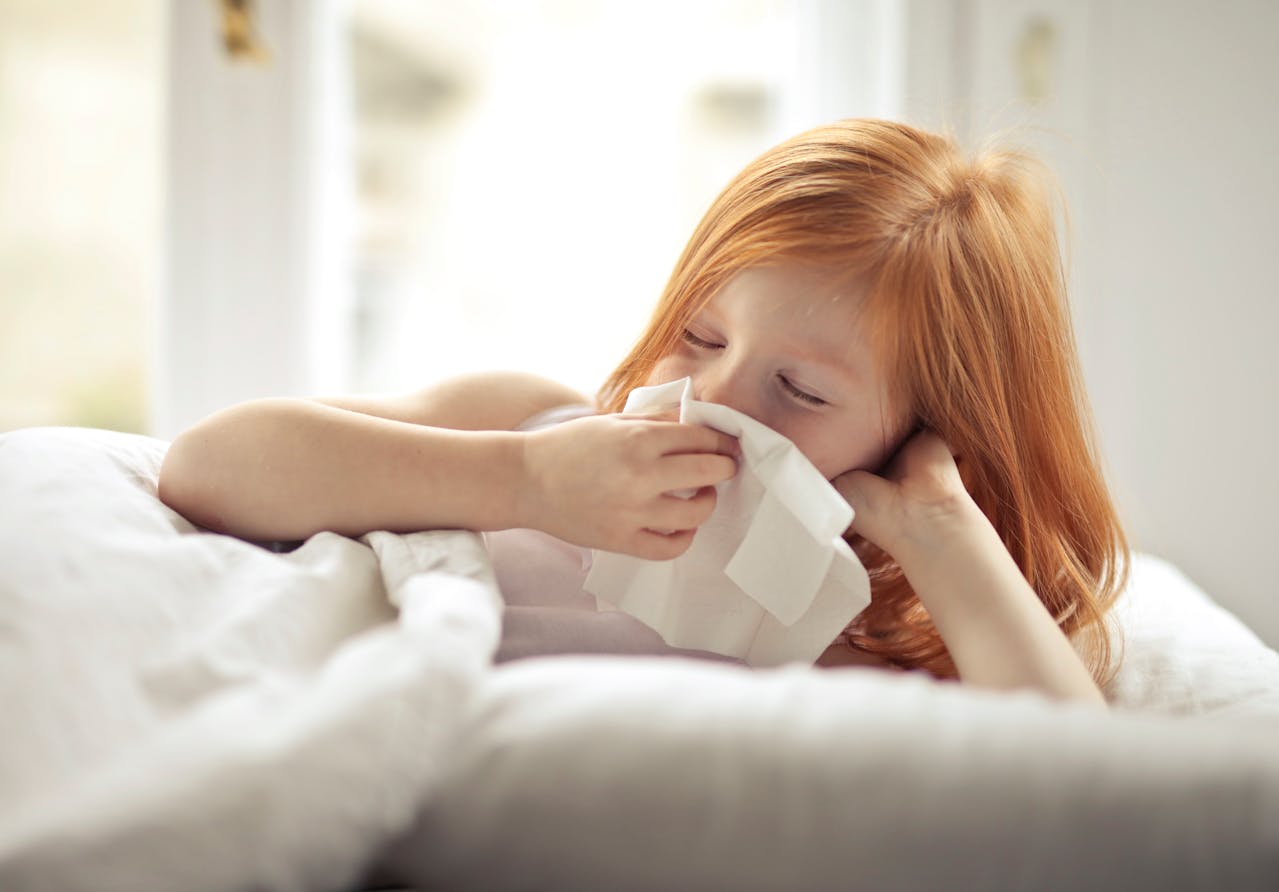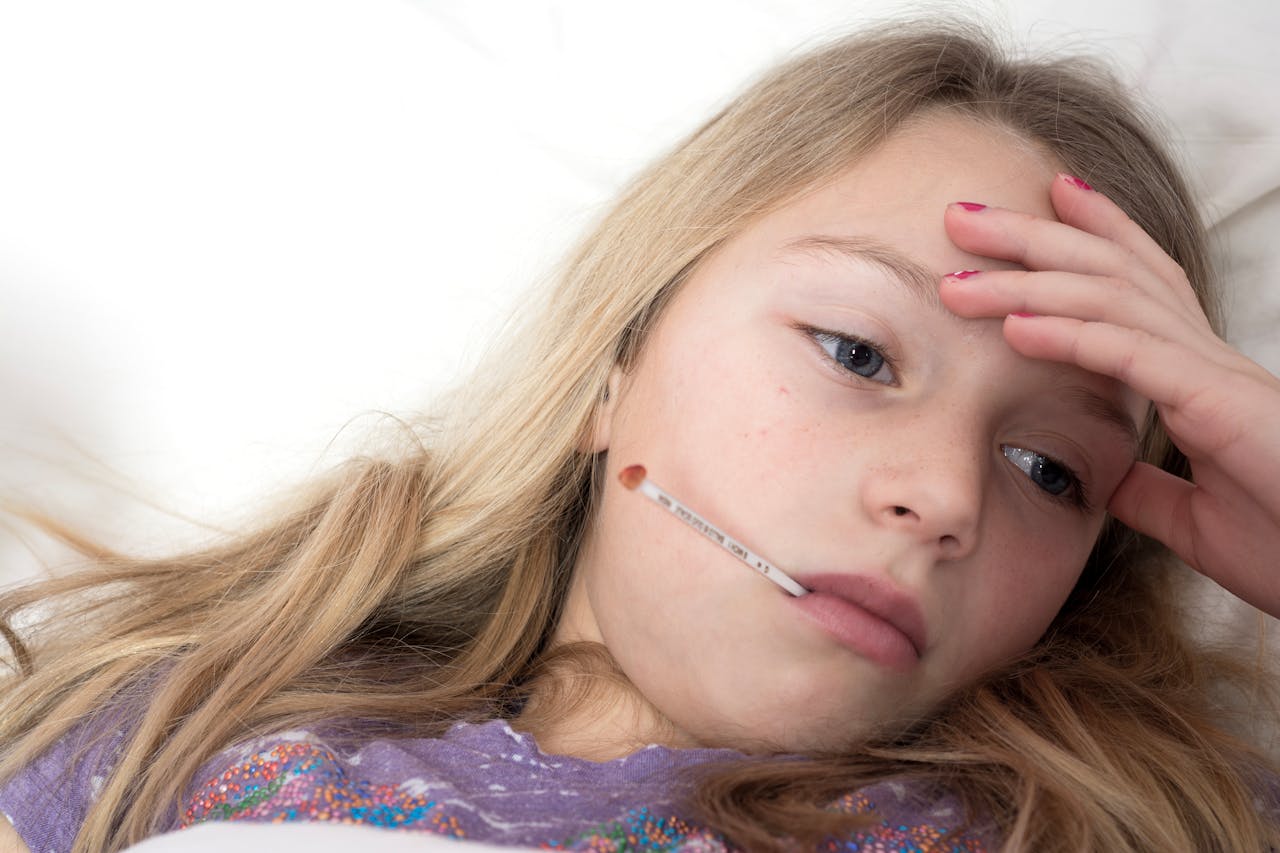Pneumonia can feel scary as a parent. To pediatricians, it’s a serious respiratory infection that goes beyond a simple cold. Our goal is to help parents recognize symptoms early, understand treatment options, and know exactly when it’s time to seek help. This guide offers a trusted pediatric perspective, offering reassurance and clear steps for care.
1. What Is Childhood Pneumonia?
Pneumonia is an infection of the lungs that inflames the air sacs (alveoli), which may fill with fluid or pus. It’s caused by various pathogens—viruses like RSV or the flu, bacteria like Streptococcus pneumoniae, or, rarely, fungi. For pediatricians, identifying the cause is key to effective treatment.
2. Why Pediatric Pneumonia Matters
Children, especially infants and toddlers, are at greater risk for serious illness when pneumonia develops. Pediatric lungs are still growing, and infections can interfere with oxygen exchange, hydration, and overall development. Complications like pleural effusion, dehydration, or even hospitalization are why pediatricians treat pneumonia with extra care.

3. Common Causes and Risk Factors
Viral causes include RSV (Respiratory Syncytial Virus), influenza, and parainfluenza.
Bacterial causes include Streptococcus pneumoniae, Haemophilus influenzae, and Mycoplasma pneumoniae—more common in school-aged children.
Risk factors:
-
Young age (infants <2 years)
-
Premature birth or low birth weight
-
Chronic conditions: asthma, congenital heart disease, immunodeficiency
-
Exposure to smoke or crowded living situations
-
Not up-to-date on vaccines
For parents who’ve read our guides on pediatric influenza prevention and RSV in infants, you know how prevention ties directly to infection risk.
4. Recognizing the Symptoms
Pneumonia symptoms vary by age and severity:
-
Mild or viral pneumonia (often following a cold or flu):
-
Persistent cough
-
Low-grade fever
-
Mild difficulty breathing
-
Decreased appetite
-
-
More serious bacterial pneumonia:
-
High fever (102–104°F)
-
Rapid or labored breathing
-
Wheezing or grunting sounds
-
Chest pain or abdominal pain
-
Dehydration (dry mouth, fewer wet diapers)
-
Lethargy or irritability
-
Infants may present with:
-
Poor feeding
-
Vomiting
-
Head bobbing while breathing
-
Apnea (pauses in breathing)
Quick identification of these signs helps pediatricians make timely diagnoses and treatment decisions.
5. When to Call the Pediatrician
Contact your pediatrician right away if your child has:
-
Difficulty breathing or fast breathing (over 50 breaths per minute in infants, over 30 in older children)
-
Blue lips or nails
-
Fever above 102°F lasting more than 24 hours
-
Chest indrawing (skin pulling between ribs) or grunting breaths
-
Refusal to eat or drink
-
Confusion or unresponsiveness
-
Fever in infants under 3 months
Quick medical attention can prevent serious complications and speed recovery.
6. How Pediatricians Diagnose Pneumonia
Diagnosis typically involves:
-
Physical exam – listening for crackles, wheezing
-
Pulse oximetry – measuring oxygen levels in blood
-
Chest X-ray – confirming infection and distinguishing between viral and bacterial
-
Lab tests – sometimes blood work or nasal swabs to detect specific pathogens
Pediatricians combine testing results with clinical observations to decide on the best treatment plan.
7. Treatment Approaches
A. Viral Pneumonia
-
Usually managed at home
-
Comfort care: rest, fluids, fever control (acetaminophen, ibuprofen)
-
Monitoring breathing and hydration
-
Oxygen support only if needed
B. Bacterial Pneumonia
-
Requires antibiotics (amoxicillin, azithromycin, or broader agents)
-
Typically a 7–14 day course
-
Possible hospital admission if the child is very young, dehydrated, or has breathing trouble
8. When Hospital Care Is Necessary
Pediatricians recommend hospital care if your child:
-
Needs supplementary oxygen
-
Lies unresponsive to home treatment
-
Has dehydration or feeding issues
-
Shows signs of complications (effusion, severe distress)
-
Is under 6 months old with influenza-pneumonia
In the hospital, children can receive oxygen, IV fluids, targeted antibiotics, and close monitoring.
9. Supporting Recovery at Home
After hospital discharge or during home treatment:
-
Hold oral antibiotics for the full course
-
Resume normal eating with nutritious meals
-
Keep daily hydration up—fluids are key
-
Encourage gentle activity, then increase as recovery continues
-
Schedule follow-up appointments with your pediatrician
-
Consider influenza or RSV recovery overlap—refer to those guides
10. Preventing Pneumonia in Children

Pediatricians recommend:
-
Keeping up with vaccinations: flu, PCV13/PCV15 (for pneumococcus), Hib
-
Promoting handwashing and respiratory etiquette
-
Encouraging breastfeeding and good nutrition in infants
-
Avoiding secondhand smoke and crowded spaces
-
Keeping asthma and chronic conditions under control
A combination of prevention strategies gives children their best chance against respiratory infections.
11. Long-Term Follow-Up
Healthy recovery includes:
-
Monitoring growth, nutrition, and sleep
-
Checking lung function in recurrent or severe cases
-
Ensuring family health habits support well-being year-round
Families who’ve followed resources like our influenza and RSV guides already recognize the value in proactive pediatric partnerships.
12. When Parents and Pediatricians Work Together
Your observations—especially around breathing, appetite, and behavior—are essential. Pediatricians combine that insight with clinical expertise. Together, we:
-
Catch pneumonia early
-
Tailor treatment to your child’s needs
-
Provide ongoing support during and after recovery
Ultimately, the strongest outcomes occur when parents trust pediatric guidance and communicate concerns openly.
13. Empowered Pediatric Care
Pneumonia in a child is scary, but pediatricians stand ready to help every step, from diagnosis to prevention. With timely intervention, careful treatment, and vigilant follow-up, most children recover completely and continue thriving.
Here’s what to do now:
-
Keep pediatrician contact info on hand
-
Watch closely for signs of pneumonia
-
Seek evaluation early if you’re concerned
-
Follow recommended vaccines and prevention strategies
-
Partner with your child’s pediatrician for long-term wellness
Pneumonia doesn’t have to steal childhood—it’s manageable, treatable, and, with the right care, fully recoverable.
